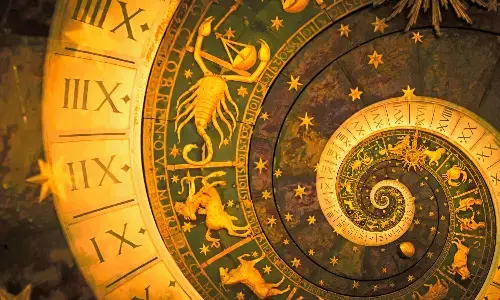Starting from scratch, building their own

The onset of the forces of liberalisation, globalisation and privatization in the early 90s of the previous century resulted in a sort of distance and time implosion.
The onset of the forces of liberalisation, globalisation and privatization in the early 90s of the previous century resulted in a sort of distance and time implosion. Travel and communications, already easier than ever before, thanks to unprecedented technological developments, became much more so. The demand for services and goods from the relatively developed countries of the world saw a sharp increase, and many developing countries responded robustly in terms of organising the supply thereof.
A phenomenon that began as long as 1.75 million years ago, emigration can be the result of causes whose origin may lie in social and political changes in the countries concerned. These include poverty, overcrowding, poor social infrastructure including education and health, internal insecurity, and a fear of conscription or drafting into the armed forces. Apart from a repressive regime in the home country with fundamental rights being denied, or poor living conditions arising from a collapsing economy in the native country. Voluntary or on account of the pressure of circumstances, emigration, which is estimated to have begun by the movement of human beings away from Africa, has profoundly shaped the world.
Studies have shown that three people out of every 100 live outside the country they were born in, representing a migration stock of 175 million out of the global population of about 7.8 billion.
As far as India is concerned, Indians living overseas comprise the world's largest overseas diaspora, with 2.5 million estimated to be emigrating every year, the highest annual number of migrants in the world. Such substantial, and regular, movement is partly encouraged by the aggressive immigration policies pursued by some developed countries such as USA, Canada Australia and New Zealand. The Middle East countries also attract a large inflow of immigrants, with Saudi Arabia having the highest ratio of migrants to local population.
Of the several advantages which accrue to a country, on account of the emigrant population, the most significant is the steady, and considerable, inflow of remittances. In India, for example, they amount to as much as US$9.2 billion per year. There is, as is to be expected, a flipside to the issue, as the outflux of qualified, and experienced, persons deprives the exporting country of their skills. And those skills, paradoxically enough, are, in turn provided in the form of development assistance by the very countries which Indians have moved to.
Non-Resident Indians, or NRIs, are citizens of India, living outside India, while People of Indian Origin (PIOs) are people living in other countries, of Indian birth or ancestry, but not citizens of India. There are also those who have what is known as an Overseas Citizen of India (OCI) status, known as Overseas Citizens of India. Many NRIs and PIOs (nearly 32 million, according to an estimate of the Ministry of External Affairs of the Government of India), have done India proud, bringing laurels to their home country, through their spectacular achievements and remarkable performance, in various fields. Look at the contribution to the American economy by the NRIs settled in the Silicon Valley region.Then there are those who have risen to the highest echelons of politics, and government, in the countries of their residence. Prominent among them are: Rishi Sunak, Prime Minister of the UK, Nimi McCongley, Republican Member of Wyoming House of Representatives - and the first woman Indian to serve as a representative in an American state legislature - Harry Anand, Mayor, New York, Piyush 'Bobby' Jindal, Governor Louisiana in 2008-16 and Nikki Haley, American Ambassador to the United Nations in 2017-18.
In another significant development, the United States squad for the under-19 Women's World Cup Cricket tournament this year comprised entirely NRIs. In earlier years, as is well known, from Ranjit Singh-ji to Nasir Hussain, several immigrant Indians played stellar roles in the field of cricket, in particular in England. Another Indian, who has covered himself with glory, and brought a great name to his home country, is Zubin Mehta, the famous Indian conductor of the Los Angeles Philharmonic Orchestra. Many countries including France, Israel, Austria and Japan have recognised his achievements and bestowed honours upon him. Similarly, in the field of literature, Salman Rushdie was awarded the much coveted Booker prize. And, in the field of Science and Technology, S Chandrasekhar in the area of the Mathematical Theory of Black Holes, Hargobind Khurana, in Chemistry and Venkatraman Ramakrishnan in Biology, all expatriate Indians, were awarded the Nobel prize. Amartya Sen, the famous economist, is also an NRI, and has made noteworthy contributions to the world of welfare economics. He was awarded the Nobel Fellow Memorial Prize in Economic Sciences, and has been honoured with the highest honor of India, Bharat Ratna.
In recognition, of the significance of the contribution of NRIs and PIOs to the cause of development of their motherland, the Government of India, since 2003, has been celebrating 9 January( significantly the day on which Mahatma Gandhi arrived in South Africa)each year as the 'Pravasi Bharatiya Divas' or the 'Overseas Indians Day.' The idea is to "mark the contribution of the Overseas Indian community to the development of India." Several important events are held on that day every year. In addition, the Government of India has also introduced an 'Overseas Citizen of India' scheme to allow limited form citizenship to NRIs and PIOs, the first such initiative since Independence.
Thus, from times immemorial, the world in general, and India in particular, have benefited substantially from the contribution of expatriates.
To end this fascinating discussion on a lighter note, there is this story going round, that Donald Trump walking through Manhattan and seeing a long queue. As he joined, the queue, wondering what it was about, people allowed him to go closer to the front. As he reached the front of the queue, a man saw Trump and was about to walk away. Trump asked that man what the queue was all about and why he was leaving. The man replied, "it is for obtaining visas to immigrate to Canada. However, if you are getting one, I don't need one anymore!"
(The writer was formerly
Secretary, Agriculture,
Government of India, Chief
Secretary, Government of Andhra Pradesh, and Member, National Disaster Management Authority (NDMA), Government of India)
















